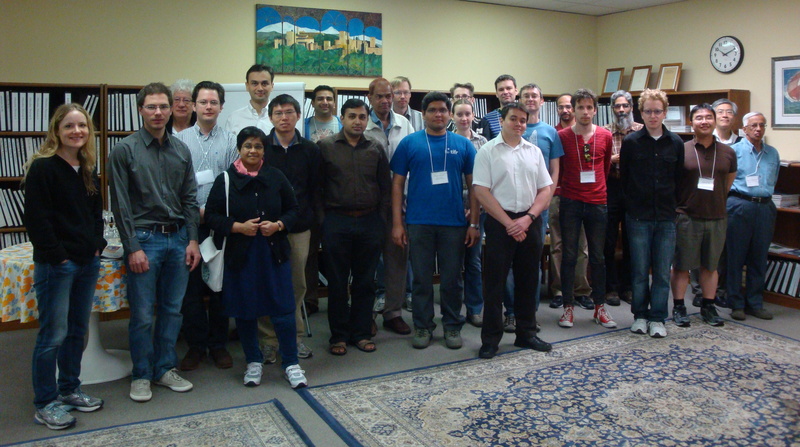Projective modules and A1-homotopy theory
May 5 to May 9, 2014
at the
American Institute of Mathematics,
San Jose, California
organized by
Aravind Asok,
Jean Fasel,
and Satyagopal Mandal
Original Announcement
This workshop will be devoted to studying recent interactions between the classical theory of projective modules and $A^1$-homotopy theory.
Recent work of F. Morel provides an analog of Steenrod's classification of topological vector bundles in terms of homotopy classes of maps to a Grassmannian. More precisely, he identifies the set of isomorphism classes of projective modules of fixed rank over a smooth affine algebra $R$ with the maps in the $A^1$-homotopy category between the associated affine scheme Spec $R$ and an algebro-geometric Grassmannian. This result provides a dictionary by which to translate topological results about vector bundles to results about projective modules. The goal of this workshop is to introduce practitioners of the theory of projective modules to modern ideas about $A^1$-homotopy theory and vice versa.
During the workshop, we will focus on the following questions/problems:
- If $P$ is a projective module of rank below the dimension, beyond the primary ``Euler class" obstruction, what can we say about secondary (and higher) obstructions to splitting off a free rank 1 summand? When are such higher obstructions sufficient to splitting?
- Can $A^1$-homotopy theory shed light on classical problems regarding complete intersections, e.g., the question of whether a curve in affine space is a complete intersection, or Murthy's problem: given an ideal $I$ in a polynomial ring, is it the case that the number of generators of $I/I^2$ is the same as the number of generators of $I$?
- How does one reconcile the ``explicit" and functorial approaches to Euler classes (via Euler class groups in the first case, and Chow-Witt groups in the second), especially in higher codimension.
Material from the workshop
A list of participants.
The workshop schedule.
A report on the workshop activities.
A list of open problems.
Papers arising from the workshop:

